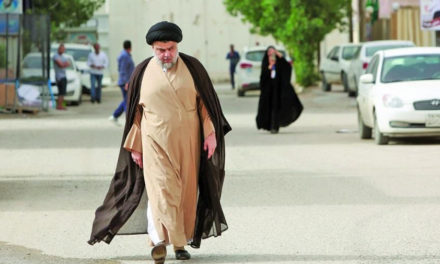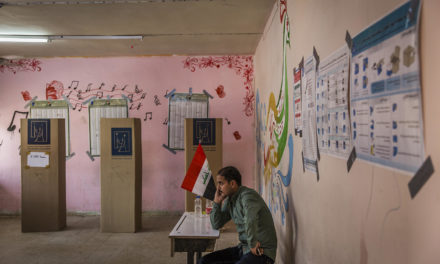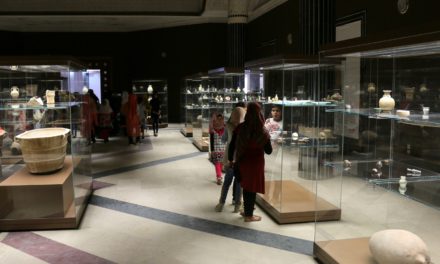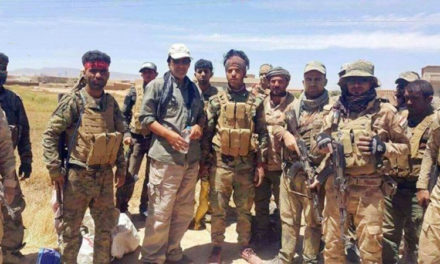The problems of global pollution which has affected the global climate greatly has resulted in an international trend to use alternative sources of energy other than oil. Gas represents one of the relatively cleaner sources and there is increasing global interest in expanding the reliance on gas energy.
Iraq increased the investments in its gas sector through the development of its stand-alone gas fields on one hand, and investments in the associated petroleum gas on the other hand. According to preliminary estimates of the Iraqi Ministry of Oil, Iraq has a reserve of 132 trillion cubic feet of gas of which 70% is associated petroleum gas. Below is a brief explanation of what associated petroleum gas is.
Iraqi gas fields are generally classified into two main categories: the fields which contain only gas, and mixed fields that contain oil and gas together. Associated petroleum can be found in three different forms:
The first is gas associated with oil located in mixed fields. The geological structure of these fields is comprised of three main sections: water, oil, and gas. These three components are separated from each other because of differences of density, where water, rich in different salts, is at the bottom, the oil above the water, and the gas at the top. The reason for the formation is that the oil in this reservoir is saturated with gas. That is why the remaining gas is assembled above the mentioned oil because of its low density. This type of gas is usually not invested because the focus is on the oil, and hence it is flared.

The second situation is the gas associated with black oil. If the reservoir is a saturated black oil reservoir, then it usually contains large quantities of blended gas. The mentioned gas is usually flared immediately after extraction from the field. When this type of oil is extracted and reaches the surface, a portion of the blended gas is released and turns into gas form because of the differences of temperature and pressure at the surface compared to the temperature and pressure in the reservoir. This gas is also usually flared.
In the third situation the gas occurs through the refining process, given that its density is lower than other substances that can be found in crude oil. This gas is also flared in old oil refineries rather than been gathered and utilized.
However, in new refineries there are two main approaches to gather gas rather than flaring it. In the first approach, the gas that occurs through a process called distilling of crude oil is collected and processed for further utilization. In the second approach, lighter products are obtaining from the crude oil through a process called fluid catalytic cracking. One of the resulting products is liquified petroleum gas. There are, of course, other process through which gas can be obtained, but they are beyond the purpose of this article.
Iraqi Oil Ministry’s strategy seeks to develop the gas sector according to a plan announced which aims to invest all of Iraq’s gas resources by 2020 instead of the current situation in which Iraq flares about 55% of the associated petroleum gas and by that loses about $2.5 billions every year. This is to be achieved based on attracting investment to explore, develop, and exploit gas from its stand-alone gas fields on the first hand, and investment of associated petroleum gas on the other hand.
The recent negotiations between the Prime Minister of Iraq and the representatives of a number of Japanese gas companies in his recent visit to Japan is a major move towards achieving this.
Iraq’s Oil Ministry announced that 80% of associated petroleum gas projects in fields like those in Basra, which equals to (900) cubic meters of gas, have already been invested in. However, other investments are on their way.
The contract that was signed recently to invest the associated petroleum gas of Nasiriyah and Gharraf reservoirs with Baker Hughes/General Electric International will provide more than 1000 tons of liquid gas, more than 900 cubic meters of the condensed gas, and more than 500 jobs. The Bazirgan field project also aims to treat and exploit associated petroleum gas from the field.
In addition, the Iraqi government signed a number of contracts for gas drying, in order to use the products of this process in the production of electricity, which will contribute to resolving Iraq’s supply problem. Also, the strategic projects of gas liquefaction will put Iraq among the few countries in the world that have this important, complex, and expensive technology, and hence qualify it to a play global role in this regard.
The recent focus of the Iraqi government on investment in associated petroleum gas will not only lead to the development of the Iraqi gas sector and make it a strategic industry, but it also has great importance at the technical, economic and political levels.
Economically, this step will reduce the depletion of Iraq’s oil reserves and replace the use of oil products with gas, which is considered a clean fuel for factories and electricity stations. The results will be a reduction of domestic oil consumption and hence a decrease in the pollution resulting from utilizing them, which will also mean an increase in Iraqi oil exports. It will also contribute significantly to resolve electricity problem in Iraq and create thousands of jobs in this sector.
In addition into that, Iraq will be a major global exporting country of gas and liquefied gas. Iraq already exported 143 thousand tons of liquified gas during 2017, and this will increase if Iraq invests all its associated petroleum gas. Needless to say, this will mean huge revenues for Iraq.
Technically, this gas through an approach that is called enhancing field return can be re-injected in oil reservoirs in order to increase its pressure and thus increase its rate of return. Instead of obtaining gas at a high price to use for this purpose, associated petroleum gas can be used, thus reducing the cost of each barrel of oil extracted from Iraqi fields, which in turn means increasing Iraqi profit margins. In other words, exploitation of the mentioned gas will increase oil production of Iraqi oil fields.
Iraq’s recent steps in regard to the investment of associated petroleum gas, especially those contracts between Iraq and Japan will allow Iraq to become amongst the biggest gas players in the world. This is a significant change in the strategic and economic situation of Iraq, something that is not getting enough local media coverage.

Youssef Ali
Youssef Ali is a Ph.D researcher in international law. He specializes in international oil and gas law and is interested in Iraqi political and legal affairs.










